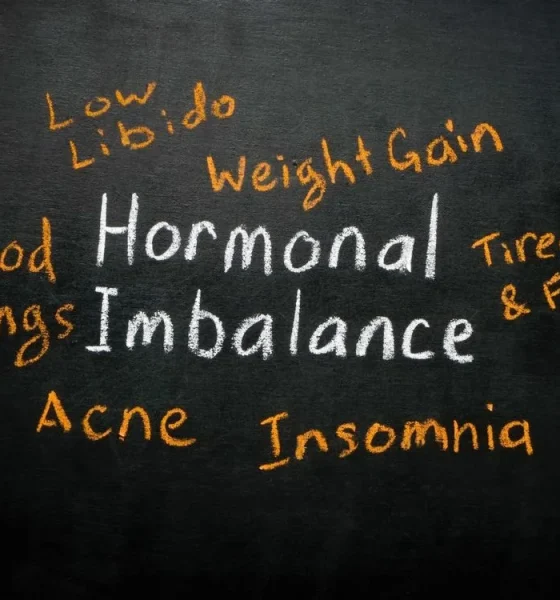Mindfulness
“Practice of Mindfulness: Unlock the Power of Empowering Self”.

How Practicing of Mindfulness Can Help to Heal
The practice of mindfulness involves gently recognizing and accepting one’s thoughts, feelings, and physical sensations while keeping one’s attention on the here and now. Despite having Buddhist origins, this practice has gained widespread acceptance in secular settings because of its benefits, which have been confirmed by science. Here are a few specific benefits of mindfulness:
1. Decreased Stress by the practice of mindfulness:
By the practice of mindfulness, can reduce cortisol levels, the hormone that causes stress; mindfulness lessens the body’s stress reaction. This aids in the prevention of diseases like diabetes, heart disease, and hypertension that are linked to stress.
Better Coping Strategies: You can react to stress more thoughtfully and less impulsively by engaging in mindfulness practices. You can clear your mind to deal with difficulties in a composed manner by concentrating on the here and now.
2. Practice of mindfulness to increase Concentration and Focus
By improving your capacity to concentrate on a single task at a time, mindfulness trains your brain to pay closer attention. The prefrontal cortex, the part of the brain in charge of concentration and executive function, is strengthened by regular practice.
3. Decreased Cognitive Interference
Mindfulness reduces distractions from intrusive thoughts by concentrating on the here and now. Productivity, memory retention, and focus are all enhanced by this.
4. Improved Control of Emotions
Emotional Awareness: Being mindful practice enables you to identify and categorize your feelings as they come up. This promotes healthier emotional processing by enabling a more balanced response as opposed to rash reactions.
Compassion and Empathy: Compassion and empathy are fostered via mindfulness exercises, particularly loving-kindness meditation. By improving your comprehension of other people’s viewpoints, regular practice helps strengthen relationships.
5. Reduction of Depression and Anxiety
Rumination (obsessive thinking) can be avoided by practicing mindful acceptance, which promotes the acceptance of ideas and emotions without passing judgment. Anxiety and the intensity of depression symptoms are lessened by this acceptance method.
Change in Brain Structure: Research indicates that mindfulness can increase the prefrontal cortex to respond actively, which controls emotions, and decrease the amygdala, the part of the brain linked to fear and anxiety. Over time, this rewiring lessens anxiety.
6. Practice of mindfulness to Improved Health
Better Sleep: Being mindful calms the body and slows down rushing thoughts, which makes it simpler to fall asleep. Better sleep enhances general health and cognitive performance.
Chronic pain management has been found to be assisted by mindfulness. It alters how the brain interprets pain, but it doesn’t always eliminate it. People are better able to handle discomfort as a result.
Enhanced Immune System: Research has demonstrated that mindfulness enhances immune function by lowering inflammation and increasing resistance to disease. It promotes improved health by reducing the synthesis of pro-inflammatory cytokines.
7. A Greater Awareness of Oneself
Understanding of Thought tendencies: Being mindful enables you to pay attention to your thoughts and identify harmful tendencies. This self-awareness aids in recognizing and combating harmful thought patterns.
Empowered Personal Growth: Finding areas for personal growth is made simpler by the self-awareness that mindfulness cultivates. This promotes self-acceptance and makes room for significant development.
8. Improved Cognitive Flexibility and Memory
Memory Retention: By reducing the propensity to become sidetracked or engage in mind-wandering, mindfulness increases working memory and the brain’s capacity to retain new information.
Cognitive Flexibility: By engaging in mindfulness exercises, you may teach your brain to think creatively and adaptably when solving problems.
9. Lessened PTSD Symptoms Detachment from Unfavorable Memories:
Mindfulness provides a means for PTSD (Post-Traumatic Stress Disorder) sufferers to see unpleasant memories without experiencing them again. Processing these memories without experiencing severe anguish may become simpler as a result.
Emotional Control in Trauma Recovery: Mindfulness reduces symptoms like flashbacks and hypervigilance by assisting people in responding to trauma stimuli in a regulated manner.
10. Improved Interpersonal Connections
Improved Communication Skills: Being mindful makes it easier to listen intently, which enhances communication. Conversations become more productive when you become more conscious of what other people are saying and less inclined to react hastily.
Decreased Conflict: Practicing mindfulness helps you handle disagreements without making them worse by boosting your tolerance and patience. Relationships become healthier and more encouraging as a result.
11. Increased Adaptability and Resilience
Better Adversity Coping: Mindfulness reduces resistance to change by teaching acceptance of the present. This facilitates adaptation and recovery from stressful events or failures.
Enhanced Psychological Resilience: Research indicates that practicing mindfulness helps you deal with hardship in a composed manner, which increases psychological resilience. This can help people recuperate more effectively from trying circumstances and avoid emotional exhaustion.
12. Increased Life Satisfaction and General Happiness
Mindful Appreciation: Mindfulness raises your awareness of good things that have happened to you and teaches you to be grateful for the here and now. This exercise fosters a sense of fulfillment and helps one appreciate the little things in life.
Improved Quality of Life: Mindfulness fosters a more optimistic mental attitude, which increases contentment and life satisfaction by lowering the emphasis on unpleasant memories and ideas.
Summary
By keeping you aware and in the now, mindfulness is a potent means of lowering stress, increasing focus, and strengthening emotional resilience. It improves emotional regulation, sharpens focus, and can lessen depressive and anxious symptoms. Being mindful improves your immune system, helps you manage pain, and promotes better sleep. It increases self-awareness, fortifies bonds with others, and increases resilience and adaptability, all of which contribute to a more contented and joyful existence. Discover the beauty of living in the present and cultivate mindfulness for a healthy body and mind!
Resources
Hidden Signs of Hormonal Imbalance & How to Fix It Naturally

Hidden Signs of Hormonal Imbalance & How to Fix It Naturally
Hormones play a crucial role in regulating various bodily functions, from metabolism and mood to skin health and reproductive health. However, an imbalance in hormones can lead to several health issues that often go unnoticed. Identifying the hidden signs of hormonal imbalance early can help you take the right steps toward restoring balance naturally.
Hidden Signs of Hormonal Imbalance
- Unexplained Weight Gain or Loss
If you’re gaining or losing weight without changing your diet or activity levels, it could be a sign of fluctuating hormones. Insulin, cortisol, thyroid hormones, and sex hormones all play a role in metabolism. An imbalance in these hormones may lead to sudden weight changes. - Persistent Fatigue
Feeling exhausted even after a full night’s sleep? Chronic fatigue is one of the hidden signs of hormonal imbalance and may be linked to low thyroid function, adrenal fatigue, or fluctuating blood sugar levels. - Mood Swings & Anxiety
Excessive stress, anxiety, irritability, or depression can be linked to imbalances in estrogen, progesterone, and cortisol. Many women experience mood fluctuations due to hormonal shifts, especially during PMS, pregnancy, or menopause. - Skin Issues & Acne Breakouts
If you’re experiencing acne, dry skin, or excessive oiliness beyond your teenage years, your hormones could be to blame. Androgens, such as testosterone, can cause excess sebum production, leading to persistent breakouts. - Digestive Problems
Hormones like cortisol and estrogen influence gut health. High stress levels can lead to bloating, constipation, or diarrhea, indicating a hidden sign of hormonal imbalance that needs attention.
How to Fix Hormonal Imbalance Naturally
- Prioritize a Balanced Diet
Eating a nutrient-dense diet rich in healthy fats, fiber, and proteins can support hormonal health. Include foods like avocados, flaxseeds, nuts, and leafy greens to regulate estrogen and progesterone levels. - Manage Stress Effectively
Chronic stress leads to elevated cortisol levels, which can disrupt other hormones. Practicing yoga, meditation, and deep breathing exercises can help keep stress in check and restore balance. - Get Quality Sleep
Lack of sleep can cause a spike in cortisol and disrupt insulin levels. Aim for 7-9 hours of restful sleep every night to support optimal hormonal function. - Exercise Regularly
Physical activity helps balance insulin, cortisol, and sex hormones. Strength training, yoga, and cardio workouts can all contribute to maintaining hormonal equilibrium. - Use Natural Supplements
Certain supplements like magnesium, omega-3 fatty acids, and adaptogenic herbs (such as ashwagandha and maca root) can help support hormonal balance naturally. - Limit Toxin Exposure
Endocrine-disrupting chemicals (EDCs) found in plastic, processed foods, and beauty products can interfere with hormone production. Switching to organic skincare, using glass containers, and avoiding processed foods can reduce exposure to harmful toxins.
Recognizing the hidden signs of hormonal imbalance early on can prevent long-term health issues. By making simple lifestyle changes, such as improving your diet, managing stress, and ensuring quality sleep, you can restore hormonal harmony naturally. If symptoms persist, consulting a healthcare provider can help you get personalized guidance.
Taking control of your hormonal health is the key to feeling energetic, balanced, and thriving in all aspects of life. Start making small changes today and embrace a healthier, more vibrant you!
Mindfulness
How to Overcome Procrastination with the 2-Minute Rule

How to Overcome Procrastination with the 2-Minute Rule
Procrastination is one of the biggest obstacles to productivity. We often delay tasks, waiting for the perfect moment, only to realize that time has slipped away. But what if you could defeat procrastination in just two minutes? The 2-Minute Rule, a simple technique introduced by productivity expert David Allen, can transform the way you approach tasks.
In this blog, we’ll explore how to overcome procrastination with the 2-Minute Rule and make steady progress toward your goals.
What is the 2-Minute Rule?
The 2-Minute Rule is based on a straightforward idea: If a task takes less than two minutes, do it immediately. For tasks that take longer, just commit to starting for two minutes. This approach eliminates excuses and builds momentum, making it easier to complete even the most challenging projects.
Why Does the 2-Minute Rule Work?
Many people struggle with procrastination because tasks seem overwhelming. Our brains resist effort, preferring immediate comfort. How to overcome procrastination with the 2-Minute Rule lies in tricking the brain into action. By focusing only on the first two minutes, you remove the mental resistance that prevents you from starting.
Once you begin, the task no longer feels as difficult. More often than not, two minutes of action lead to continued effort, and before you know it, you’ve made significant progress.
How to Apply the 2-Minute Rule
Here’s how you can implement the 2-Minute Rule in different areas of your life:
- Daily Chores: Instead of leaving dishes in the sink, wash them immediately—it takes less than two minutes.
- Email Responses: If you can reply in two minutes, do it now instead of postponing it.
- Exercise: Put on your workout clothes and commit to just two minutes of movement. Most likely, you’ll continue beyond that.
- Reading: Read one page of a book. Often, you’ll find yourself reading more.
- Work Tasks: Open a blank document and write the first sentence of a report or blog. Getting started is the hardest part.
By following these steps, you’ll see how easy it is to develop new habits and stop delaying important activities. How to overcome procrastination with the 2-Minute Rule is about mastering small wins that create long-term success.
The Science Behind the 2-Minute Rule
Behavioral psychology supports this method. When you take immediate action, you rewire your brain to associate tasks with completion rather than avoidance. Over time, this builds discipline and eliminates the habit of procrastination.
Additionally, the 2-Minute Rule capitalizes on the Zeigarnik Effect, which suggests that once you start a task, your brain feels the need to finish it. This explains why committing to just two minutes often leads to much longer work sessions.
Overcoming Challenges with the 2-Minute Rule
Although the 2-Minute Rule is effective, you may still face challenges. Here’s how to handle them:
- Lack of Motivation: Remind yourself that you’re only committing to two minutes.
- Distractions: Keep your phone away and set a timer to stay focused.
- Negative Mindset: Celebrate small wins to reinforce positive behavior.
By making the 2-Minute Rule a daily practice, you’ll notice a significant shift in your productivity. How to overcome procrastination with the 2-Minute Rule is not just about doing small tasks—it’s about building momentum, creating habits, and achieving big goals one step at a time.
Stress Management
Why Do We Doubt Ourselves?

Why Do We Doubt Ourselves?
Self-doubt is a common mental barrier that affects almost everyone at some point in life. Whether it’s about making career decisions, pursuing passions, or stepping into unknown territories, this inner voice often holds us back from reaching our full potential. But why do we experience self doubt, and how can we overcome it?
The Root Causes of Self-Doubt
- Past Failures and Mistakes
One of the biggest reasons for self-doubt is our past experiences. If we have failed at something before, our mind builds a defense mechanism to avoid similar outcomes. This fear of failure creates hesitation, making us question our abilities even when we are fully capable. - Comparing Ourselves to Others
In the age of social media, comparison has become second nature. Seeing others succeed can sometimes make us feel inadequate. We often forget that people usually showcase their highlights, not their struggles. Constantly comparing our journey with someone else’s can feed self-doubt and make us feel we are not good enough. - Lack of Positive Reinforcement
Encouragement plays a vital role in building self-confidence. If we have grown up or worked in an environment where our efforts were not recognized, it can contribute to self-doubt. The absence of appreciation makes us question our capabilities and hesitate to take risks. - Fear of Judgment
The fear of being judged or criticized by others can fuel self-doubt. We worry about what people will think if we fail or if our decisions do not turn out well. This need for validation often stops us from taking necessary actions. - Perfectionism
Many people experience self-doubt because they aim for perfection. When we set unrealistic expectations for ourselves, any small imperfection makes us believe we are not good enough. This creates a cycle of procrastination and fear of not meeting high standards.
Overcoming Self-Doubt
- Recognize and Challenge Negative Thoughts
The first step to overcoming self-doubt is recognizing when we are experiencing it. Question the negative thoughts—are they based on facts or just fears? Replacing negative self-talk with rational and encouraging thoughts can help boost confidence. - Focus on Small Wins
Every small achievement counts. Instead of waiting for big successes, celebrate small milestones. Each win proves that we are capable and helps to diminish self-doubt over time. - Practice Self-Compassion
Be kind to yourself. Everyone makes mistakes and has doubts. Instead of harshly criticizing yourself, treat yourself with the same kindness and encouragement you would give a friend. - Surround Yourself with Positive Influences
Being around supportive and positive people can help reduce self-doubt. Seek mentors, friends, or communities that uplift you rather than those who reinforce your insecurities. - Take Action Despite Fear
Sometimes, the best way to overcome self-doubt is to take action despite the fear. The more we push through our doubts, the weaker they become. Confidence builds through experience and persistence.
Finally I want to say, Self-doubt is a natural feeling, but it does not have to control our lives. By understanding its root causes and actively working to overcome it, we can move forward with confidence and achieve our goals. Remember, even the most successful people have faced self doubt, but they didn’t let it stop them. You are capable of more than you think—believe in yourself!
-

 Healthy Habits5 months ago
Healthy Habits5 months ago5 Morning Routines for Maximum Energy
-

 Sustainable Living5 months ago
Sustainable Living5 months agoImportance of Self-Love in Mental Health
-

 Healthy Habits5 months ago
Healthy Habits5 months agoBest 6 Ways to Stay Mentally and Physically Healthy
-

 Stress Management5 months ago
Stress Management5 months agoBalancing Multiple Roles: How Trying to Be the Best in All Areas Leads to Feeling Stretched
-

 Mindfulness6 months ago
Mindfulness6 months agoMindfulness
-

 Meditation Practices5 months ago
Meditation Practices5 months agoOsmosis App for Pharma Students is a Must-Have Tool
-

 Healthy Habits5 months ago
Healthy Habits5 months agoMenstrual Cycle Journal to Empower Your Health
-

 Lifestyle5 months ago
Lifestyle5 months agoSelf-Compassion for Working Moms: Balancing Self-Care with Motherhood













